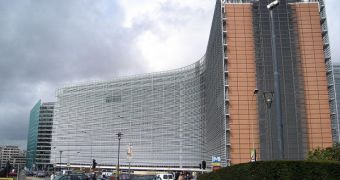European environment ministers have met today in Brussels to discuss the faith of the developing world, as far as climate funding goes. Because poor countries hold up most of the rain forests in the world, it's crucial for the international community to protect these sites of special interests. The problem is that the people and the governments in those regions don't necessarily feel the same way, mostly because they could interpret an international ban on forests as a denial of their right to develop. That's why subsidies coming from developed countries are absolutely essential.
For example, China and India, which are two of the most polluting countries in the world, say that they will not accept any kind of decision at the UN conference in Copenhagen, later this year, if it contradicts their right to grow. And they have the most powerful argument: countries such as the UK, the US and Japan have had their time to grow, when the amount of CO2 they emitted went unchecked and triggered the situation we are in now. At this point, these nations feel like they have to grow too, but keep an open mind, if foreign funds could make them achieve that objective without polluting.
“We definitely want to move the European position further on. We are offering two kinds of financial mechanism based on which the developed countries will share responsibility of financing the mitigation and adaptation measures in the developing countries,” the Czech Republic's environment minister Martin Bursik said. His country is the current holder of the EU presidency.
Unfortunately, there are still some European nations that feel like the Old Continent has no business in the third world, and, as such, do not wish to participate. This could have severe repercussions on the way the EU handles the Copenhagen talks, because it has to give out a strong signal and inner fragmentation wouldn't do anyone any good.
“This could again paralyze U.N. climate negotiations. Last year, it became clear negotiations didn't move forward because the EU hadn't done its homework on financial support,” Joris den Blanken, a Greenpeace campaigner, added. “We are still waiting on the United States, that they provide us the mid term targets and that they will adopt the cap and trade system and talk about their money,” Bursik concluded.

 14 DAY TRIAL //
14 DAY TRIAL //